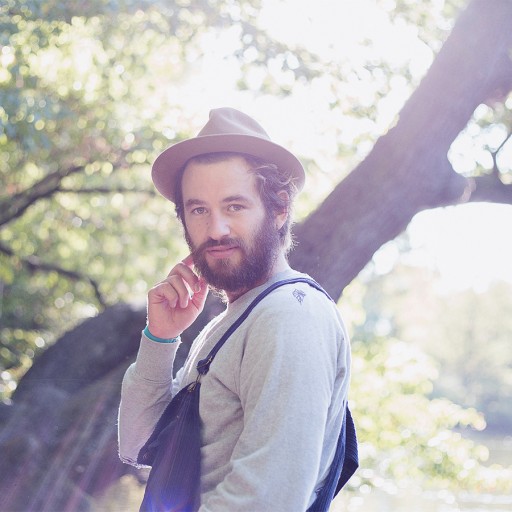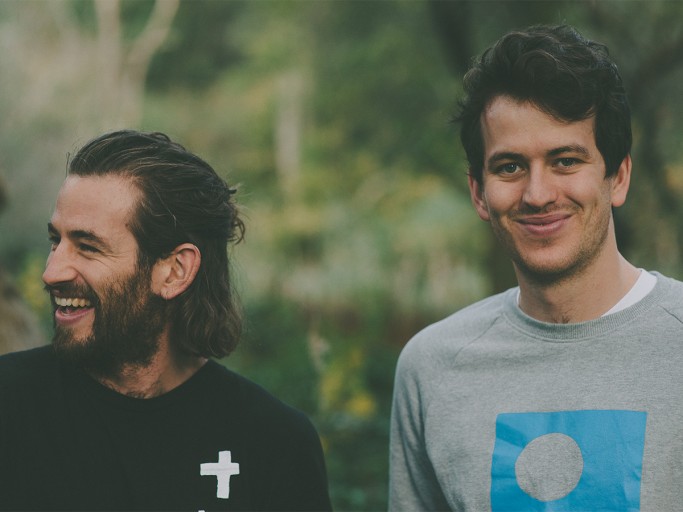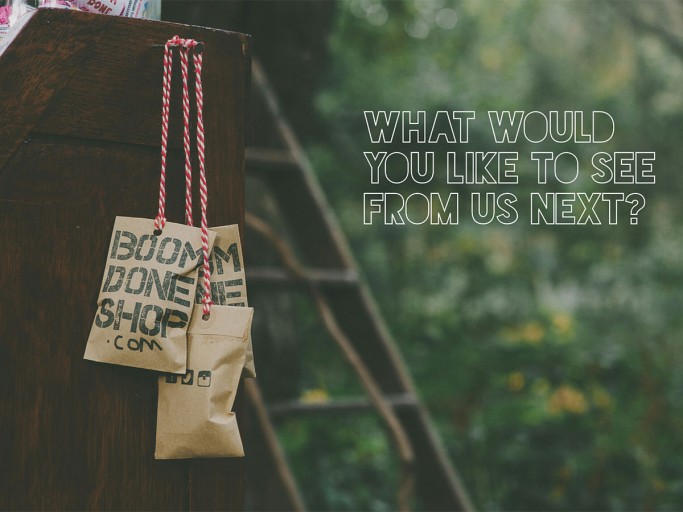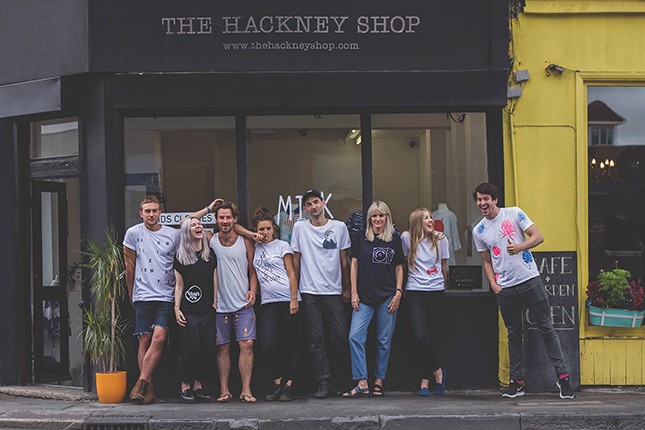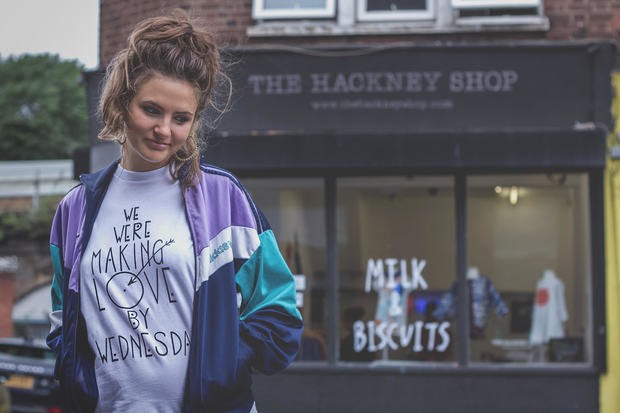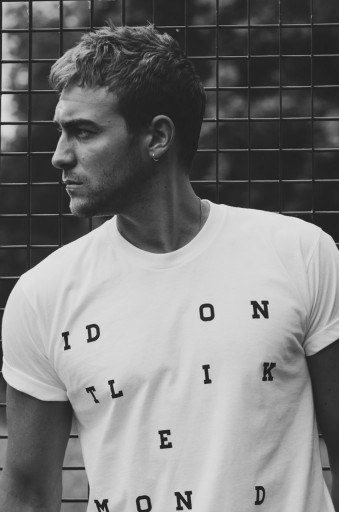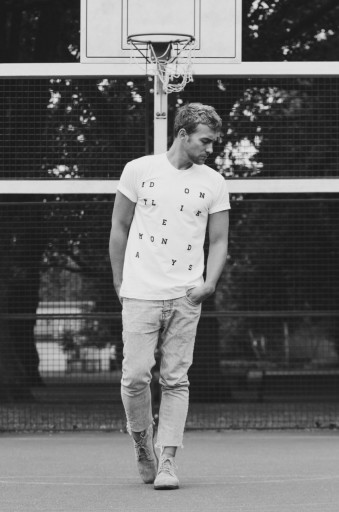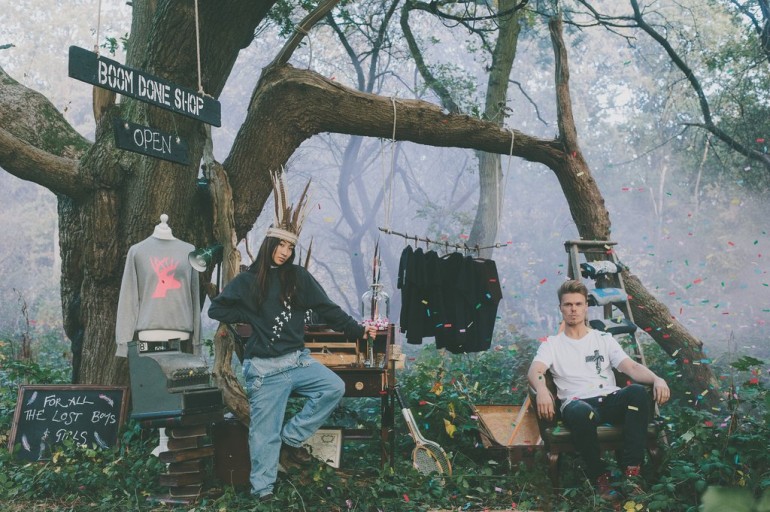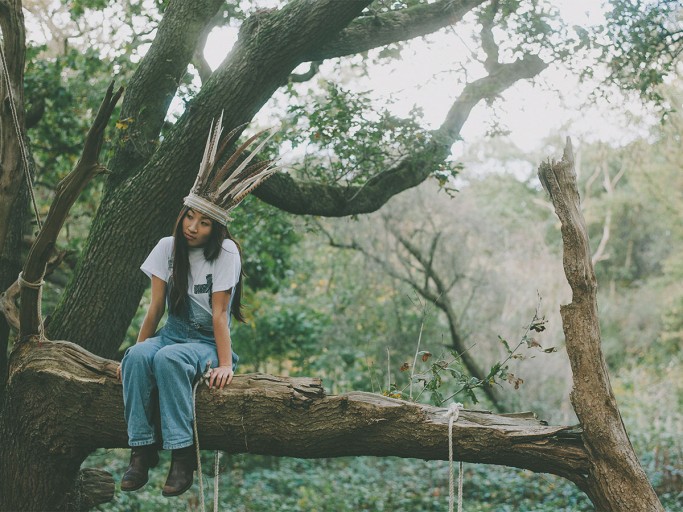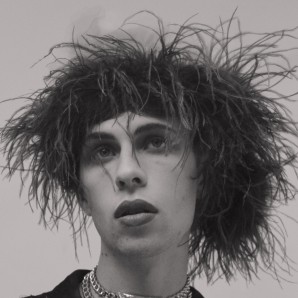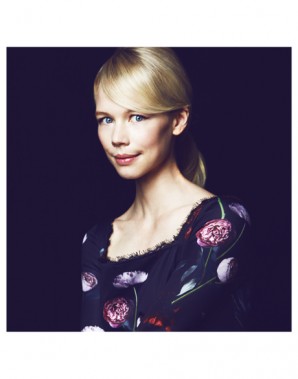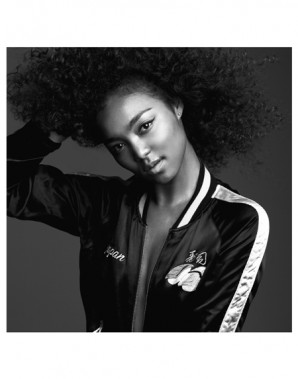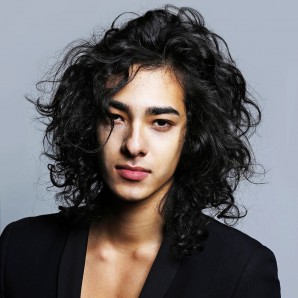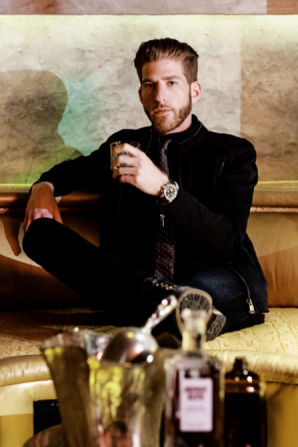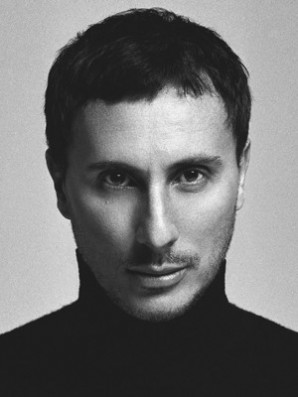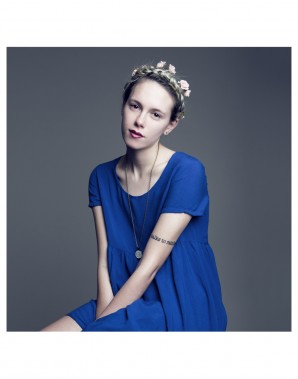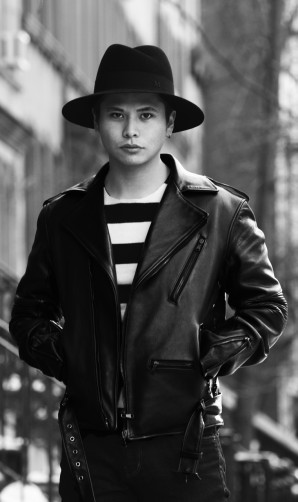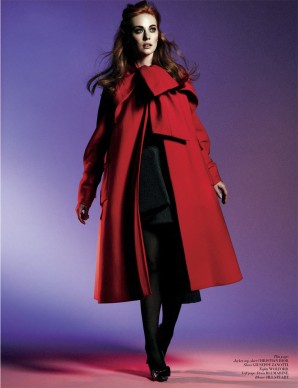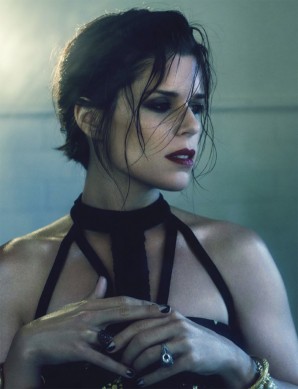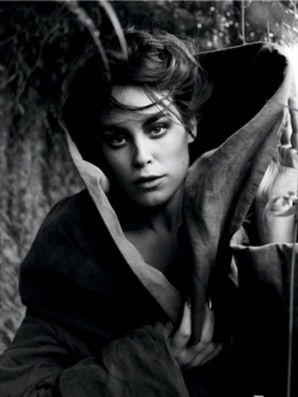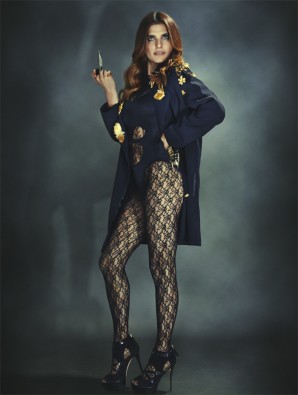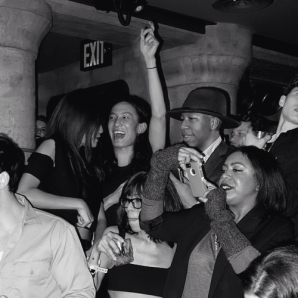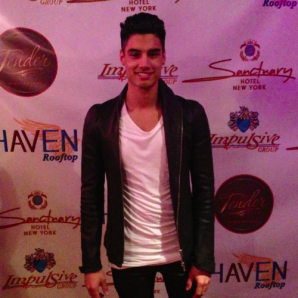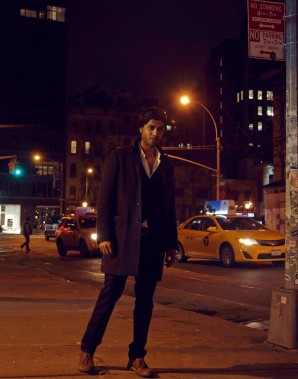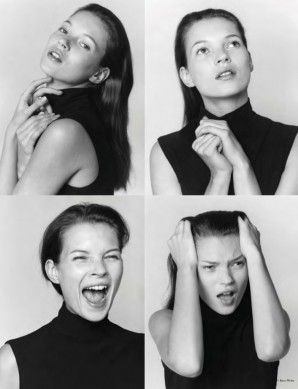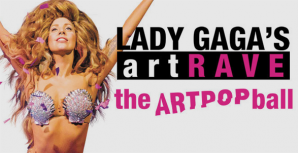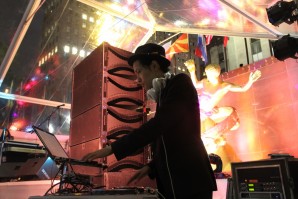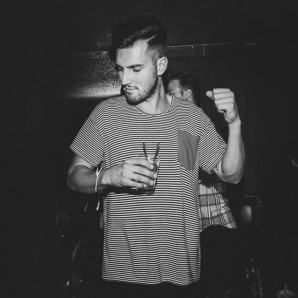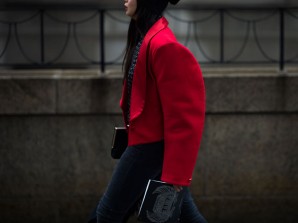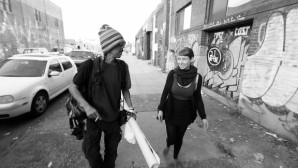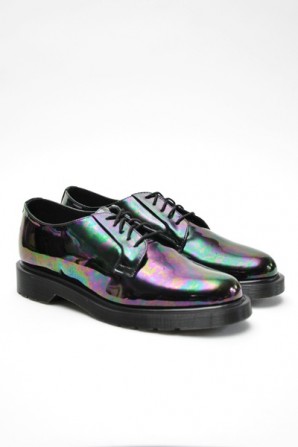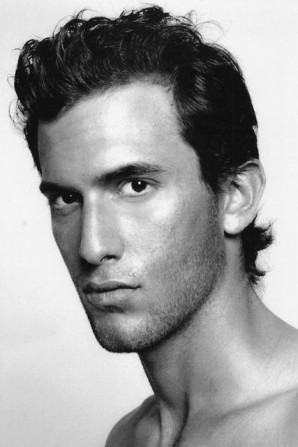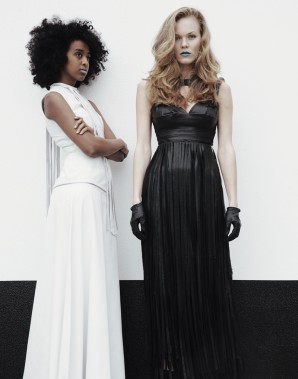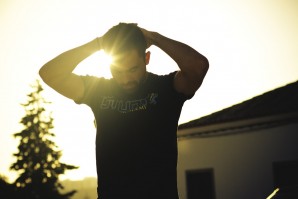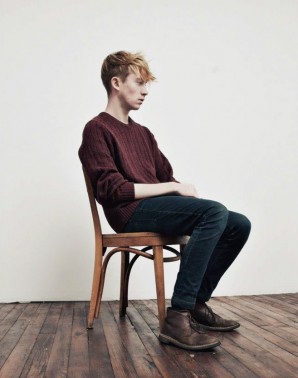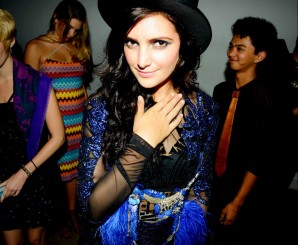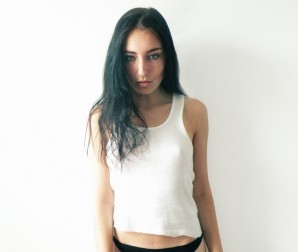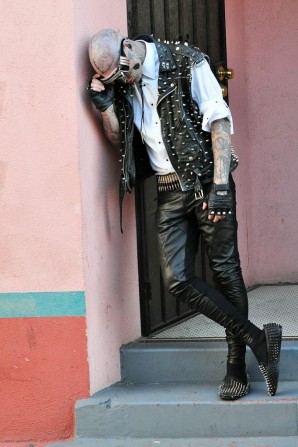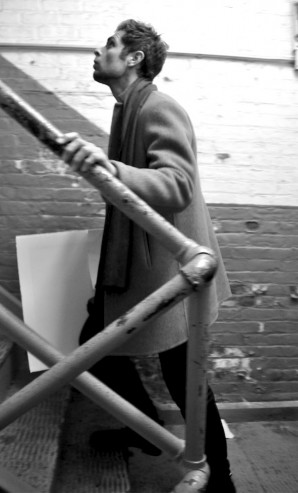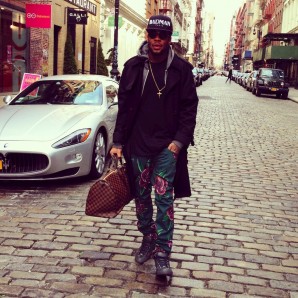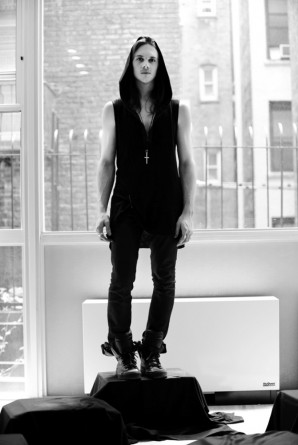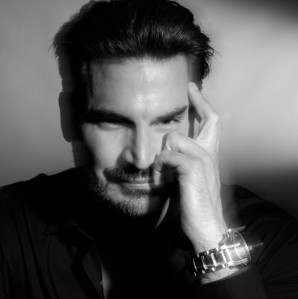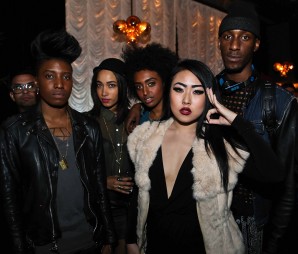TWELV takes a step back and visits the masterminds behind the camera.
NEW TYPE #18: BOOM DONE SHOP - LIAM BERGIN INTERVIEW
“Introducing the new hot British ethical apparel brand BOOM DONE SHOP”
You might have already heard about their collaboration with Tom Austen, star of the popular show The Royals. Elliott and Liam Bergin are the two brothers behind the emerging, ethical apparel brand BOOM DONE SHOP. BOOM DONE SHOP feels so good we want to say it twice. TWELV Magazine brings you an exclusive Q&A with this couple of lost boys as they call themselves, the perfect opportunity to discover a new, environmentally responsible brand.
----------- LIAM’S INTERVIEW -----------
1. Why did you choose the name "BOOM DONE SHOP?"
As we acted like rascals whilst growing up, ‘BOOM, DONE’ was our catch phrase to each other and still is. We added the SHOP because, well, it's a shop. Also our mum is from Trinidad and our favourite food from there is called 'Buss Up Shut', the food tastes as good as it sounds. And it reminds us of that.
2. What is a "lost boy" or a "lost girl?"
We were brought up on Peter Pan, the prince of the lost boys. As we have grown up we’ve been inspired by films and plays, mischievous stories, rebellion and other antics. We think lost boys and lost girls always search for more and are curious by nature. They show courage and have open hearts. They stand up for themselves and those they love. And probably spent a lot of time outside in rivers, up trees and in abandoned buildings...
3. How did you decide to start your own brand?
Although Elliott is the younger one of the two of us he has always been the boss and my taste guru. When we were in our teens Elliott was gigging round London with various bands I’d tag along and be roadie/ head of merch / court jester. He knew about the trend transition from baggy skater jeans to skinny jeans years before Justin Bieber got the memo. I've always trusted him and knew we could work well together. The rest has just kind of happened...
4. What is it like to work with your brother?
It’s like not growing up. Which is the dream, isn't it? We've always been best friends and shared interests together, so in that respect it's been easy to work together. But we're also different in lots of ways and I think as a pair we complement each other. We can argue but I think that's good, you need passion to push things forward.
5. Your brand has already had some major moments– a feature on ASOS, a collaboration with Tom Austen. Can you tell us a little more about those experiences?
ASOS gave us a beautiful platform to launch our brand and meet the lost boys and girls who needed a bit of BOOM DONE in their lives. We were nominated boutique of the week within our first month which was such an honor. ASOS is where we made our first ever international sale, which was a real game changer. Our customers went from our local market to Russia, Spain, Japan and USA within the first week of being on their site.
Before BOOM DONE, Elliott was in a band and I was an actor. To make good music or visual art you need to be a good collaborator. It seemed an obvious choice for us to build this brand by working with our friends. Tom and I first meet at The Guildhall School of Music and Drama in London where we trained together. I have always admired his taste, so it seemed so obvious that we should collaborate together. Some of the other collaborators have been:
Laura Coughlan – photographer
Tobias Hall- typographist
Claudia Pallazzo- choreographer
Kae Alexander- actress
Terry Doe- actor and publicist
Paloma Oakenfold- actress/ director
Nabeel Khan- photographer
Bernadette Baska- photographer
Thomas Mitchell- designer
Keep an eye out for our latest shoot featuring the rising star Nikesh Patel, another friend I met in the corridors at The Guildhall School of Music and Drama.
6. Do you think that playing outside when you were growing up influenced your decision to create a greener brand?
Yes, certainly. And without getting too preachy, we are all so much happier when we get outside, get out of our own heads and just do things… Be it creating something, playing something, making bows and arrows, campfires or building skate ramps. These experiences had a huge positive influence.
7. On your website, you have a video presenting how you make your t-shirts. Is it important for you to be transparent about your process?
Yes. We’ve learnt a lot in the short time we have run this business. For example, when we started out back in 2014 our t-shirt supplier was American Apparel. We used their organic cotton t-shirt which was the most expensive in the market. I wanted to do a transparency article, which involved a profile on the workers involved in production, from spinning the yarn to cutting and stitching the t-shirts.
So I asked my contact at American Apparel for answers to seemingly simple questions. I was then forwarded to the legal team and sent some vague indirect responses. I intend to investigate this further one day but the bottom line is they say their clothes are made in the US but it’s been said it comes from India and Bangladesh via cotton brokers. I didn’t get my answers because they never got back to me. They may have changed things up since, but we’re an ethical brand and we needed more information and transparency than we were given.
8. Your materials are carefully sourced to ensure that they are produced in humane conditions. How do you make certain of the working conditions in your supply chain?
This is an ongoing process for us; I think it always will be. The industry is improving, driven by charities like Fashion Revolution and the film The True Cost shining light on the situation. Fundamentally, the biggest issues within the fashion industry are the same faced by society as a whole: gender equality, social equality and the environment.This is not new information, but it’s easy to forget. Clothes manufactured in the developing world are made predominantly by women, and they are badly underpaid often without rights and basic securities in dangerous factories. They are being exploited.
And the reason fast fashion gives us such cheap clothes every season is because of inequality – people work in unfair and risky ways to make them. Developing countries and sweatshops produce huge amounts of clothes at an astonishing rate. Their human rights and safety is often ignored and companies ignore ethics to cut costs and increase profits. Like a lot of mistakes humans make, our planet foots the bill. The fashion industry takes a brutal toll on the Earth through water use, pollution from manufacturing and waste filling up landfill sites. The reason I went into that is to explain the scale of the problem. I don’t want to use this article to pat ourselves on the back; none of us are doing enough.
Our textile supplier has ensured us that the materials we use have been made with:
- No use of child labour
- No use of forced labour
- Safe and healthy working conditions
- Legal labour contracts
- Payment of living wage
- Freedom of association and the right to collective bargaining
- No discrimination against employees
- No excessive hours of work
- Zero carbon footprint
- Use of wind and solar energy
- Cyclical water filtration system
- Organic production (no pesticides)
ALL these things are great within our current situation, but it’s not enough. Hashtags and movements like ‘SLOW FASHION’ and ’30 Wears’ are hugely important. On our website and at our pop up events we sell our t-shirts to our customers at the industry recommended wholesale price. Because we wouldn’t pay excessive prices for a t-shirt ourselves, so we don’t expect our customers to do so either. But we still want to pay the person in the factory properly. It makes it fair for our customers and to the workers across our supply chain.
We want to educate people about the need to buy ethically when they can. And we know our clothes are made in safe, healthy conditions. Not through the blood, sweat and tears of a woman who can’t afford to educate her children and whose farmer husband is ill from pesticide damage. This, sadly, is happening as we speak all across the developing world. We also know people are still fueling the fast fashion side of the industry and that is damaging our planet and our fellow men and women. People all around you, maybe right next to you while you read this are dressed in clothes made from sadness, pain, suffering and toxic chemicals. We all need to do more!
9. You recommend watching the movie « The True Cost », which also strongly impacted me. I think it is a documentary that cannot leave someone unaffected. What's the importance of ethical and sustainable fashion becoming an industry-wide benchmark?
In a word: paramount.
10. What is coming next for BOOM DONE SHOP?
Firstly, after answering these important questions I need to go for a walk in the fallen autumn leaves and calm down. Maybe I’ll even lie down, wave my arms about and make a fallen leaves angel on the floor. … And then, what’s next for us? We’ve been meaning to do this for a while now but this seems like the perfect opportunity. We’d like to ask the lost boys and girls what would they like to see from us next? [Please see image, third from the left]
Thank you for your time, Louise (TWELV), and thank you, reader, for reading it.
INTERVIEWED BY LOUISE GUILLOT
PHOTO CREDIT: BOOM DONE SHOP
related posts
IKEMEN #24: LUKE ABBY
IKEMEN (ē´k´mɛn): Japanese Slang
"REALLY, REALLY, RIDICULOUSLY GOOD LOOKING PEOPLE"
ERIN FETHERSTON EXCLUSIVE INTERVIEW
NAME: Erin Fetherston
ORIGIN: California
OCCUPATION: Fashion Designer
CRYSTAL KAY EXCLUSIVE INTERVIEW
NAME: Crystal Kay
ORIGIN: Yokohama, Japan
OCCUPATION: Performer and musician
IKEMEN #23: ANSONI
IKEMEN (ē´k´mɛn): Japanese Slang
"REALLY, REALLY, RIDICULOUSLY GOOD LOOKING PEOPLE"
IKEMEN #22: ADAM SPOONT
IKEMEN (ē´k´mɛn): Japanese Slang
"REALLY, REALLY, RIDICULOUSLY GOOD LOOKING PEOPLE"
BABËL New York Celebrates 1 Year Anniversary With Two Day Event of Excess and Splendor
BABEL NEW YORK acclaimed the NYC party scene in celebration of their First Year Anniversary. As temperatures begin to heat up in NYC, there is no better locale than the much desired rooftop.
BEHIND THE SCENES #2: LUIGI MURENU
TWELV's Behind the Scenes takes a step back and visits the masterminds behind the camera.
IKEMEN #21: MICHELLE VON MANDEL
IKEMEN (ē´k´mɛn): Japanese Slang
"REALLY, REALLY, RIDICULOUSLY GOOD LOOKING PEOPLE"
IKEMEN #20: GEORGE INAKI
IKEMEN (ē´k´mɛn): Japanese Slang
"REALLY, REALLY, RIDICULOUSLY GOOD LOOKING PEOPLE"
DEBORAH ANN WOLL: ALL THE WORLD'S A STAGE
Deborah Ann Woll’s voice glows when she speaks, as warm and full as her golden red hair.
NEVE CAMPBELL: LOSE YOURSELF TO DANCE
Carrying over two decades of the industry on her back, there aren’t many women with the grace and stoicism of Neve Campbell.
GARETH PUGH: ORGANIZED CHAOS
Gareth Pugh is a study in contrasts; balancing the demands of what is created and what is worn; what is in a designer’s control and what is in the hands of the wearer; what must be planned and...
LAKE BELL: THE GREAT LAKE
Lake Bell has made a name for herself as a charming, beautiful, and witty New Yorker capable of indie and blockbuster success (“It’s Complicated”, “No Strings Attached”, “Children’s Hospital...
FRIDAY'S FW PARTY
With Fashion Week’s second day over, Friday night was primetime for some of the most prominent designer to celebrate their successes over a glass of champagne.
IKEMEN #19: SAMAR SAJJAD
IKEMEN (ē´k´mɛn): Japanese Slang
"REALLY, REALLY, RIDICULOUSLY GOOD LOOKING PEOPLE"
Happy Birthday, Kate the Great!
Happy birthday to everyone’s favorite super model Kate Moss. The Brit enters her 40th year with grace, and she looks better than ever.
Lady Gaga's ArtPop Ball
Lady Gaga is back, and this time, it’s not just to perform.
IKEMEN #18: KEIICHIRO NAKAJIMA
IKEMEN (ē´k´mɛn): Japanese Slang
"REALLY, REALLY, RIDICULOUSLY GOOD LOOKING PEOPLE"
IKEMEN #16: KAROLYN PHO
IKEMEN (ē´k´mɛn): Japanese Slang
"REALLY, REALLY, RIDICULOUSLY GOOD LOOKING PEOPLE"
Futura Bold
Futura came up in the grimy, visceral environment of New York City’s early 1970’s street culture of tagging, bombing and writing graffiti – making their art not in the city, but on top of it.
FROM AUSTRALIA WITH LOVE: WHAT I'VE LEARNED SO FAR
Buyer’s Regret: It’s just like buyer’s remorse only in reverse. And it is a fashion crime that I have and will probably continue to commit time and time again.
IKEMEN #15: EDOARDO IANNUZZI
IKEMEN (ē´k´mɛn): Japanese Slang
"REALLY, REALLY, RIDICULOUSLY GOOD LOOKING PEOPLE"
FROM AUSTRALIA WITH LOVE: Designer Profile of Gabriella Ferrante
I find that Australia’s fashion industry can sometime be accused of playing catch-up with other, bigger and more cosmopolitan locations (i.e. Paris, London etc…) This needn’t be the case.
IKEMEN #14: Joao Veiga de Aguiar
IKEMEN (ē´k´mɛn): Japanese Slang
"REALLY, REALLY, RIDICULOUSLY GOOD LOOKING PEOPLE"
FROM AUSTRALIA WITH LOVE: PRETTY BOYS DON'T BUY THEIR OWN DRINKS
Its no secret if you know me – I like to drink.
IKEMEN #13: NATALIE O'BRIEN
IKEMEN (ē´k´mɛn): Japanese Slang
"REALLY, REALLY, RIDICULOUSLY GOOD LOOKING PEOPLE"
IKEMEN #12: KRISTIN PRIM
IKEMEN (ē´k´mɛn): Japanese Slang
"REALLY, REALLY, RIDICULOUSLY GOOD LOOKING PEOPLE"
ARTIST, MODEL, AND LIVING PIECE OF ART: ZOMBIE BOY
From Zombie Boy to living icon, Rick Genest isn’t just Nicola Formichetti’s muse anymore.
IKEMEN #11: JAY PAAVONPERA
IKEMEN (ē´k´mɛn): Japanese Slang
"REALLY, REALLY, RIDICULOUSLY GOOD LOOKING PEOPLE"
DON'T CALL DELANO BROWN A DESIGNER
TWELV met up with the always-unpredictable artist Delano Brown for lunch in Bryant Park.
IKEMEN #10: LOGAN NEITZEL
IKEMEN (ē´k´mɛn): Japanese Slang
"REALLY, REALLY, RIDICULOUSLY GOOD LOOKING PEOPLE"
Rocco Leo Gaglioti
Who are you?
Rocco Leo Gaglioti Creator/Host of Fashion News Live and Owner/CEO of RLG Productions, Corp.
NICOLA FORMICHETTI TUMBLR MEETUP HIGHLIGHTS
“My job feels more like a hobby than a job, really; it’s always fun,” says Nicola Formichetti for TWELV’s second issue.

